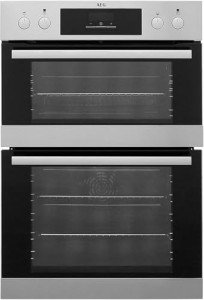What Is Bulit-In Ovens And Why Is Everyone Talking About It?
The Ultimate Guide to Built-In Ovens: Enhancing Your Culinary Experience
Built-in ovens have ended up being a staple in modern-day cooking areas, dealing with the developing needs of both amateur and expert chefs. They are created to seamlessly incorporate with kitchen cabinetry, providing visual appeal while taking full advantage of area and functionality in the kitchen. This detailed guide explores the advantages, types, functions, and maintenance of built-in ovens, offering readers with the essential knowledge to make an informed purchase.
What is a Built-In Oven?
A built-in oven is an oven that is installed straight into the kitchen cabinets for a streamlined look. Unlike freestanding designs, which can be moved and repositioned, built-in ovens are normally embedded within the kitchen design, making them a permanent component. These ovens can be found in different styles and sizes, permitting homeowners to personalize their kitchen space to fit their specific style and cooking needs.
Benefits of Built-In Ovens
1. Visual appeals
Built-in ovens provide an advanced surface to kitchen designs. visit my homepage up with cabinetry, producing a seamless look that enhances the general appearance of the kitchen.
2. Area Efficiency
Developed to save space, built-in ovens can be placed at eye level, allowing chefs to monitor their dishes without bending down. They can also be stacked with other appliances, offering additional space for food preparation.
3. Advanced Features
Many built-in ovens come geared up with advanced technology, such as:
- Smart controls permitting remote operation via mobile apps
- Multi-function cooking choices (e.g., convection, steam, or air frying)
- Self-cleaning abilities for effortless upkeep
- Accurate temperature controls for constant baking outcomes
4. Increased Property Value
Modern built-in ovens can enhance the worth of a home. Potential buyers often value the smooth appearance and integrated features of a built-in design, making it an appealing selling point.
Kinds Of Built-In Ovens
Built-in ovens can be found in different types that accommodate numerous cooking strategies and choices. The primary classifications include:
1. Wall Ovens
Wall ovens are installed on walls, maximizing floor area and enabling ease of usage. They can be single or double ovens, with double ovens supplying more cooking capacity for large meals.
2. Microwave Ovens
Built-in microwave ovens are created to blend effortlessly with cabinets. They can save counter space and are frequently integrated with wall ovens for a total kitchen setup.
3. Steam Ovens
Steam ovens prepare food utilizing steam, retaining more nutrients and flavors. They are perfect for health-conscious cooks aiming to prepare healthy meals while making the most of taste.
4. Mix Ovens
Mix ovens integrate microwave technology with conventional oven functions, allowing for flexible cooking choices. They make it possible for users to bake, roast, and even steam food, giving chefs more versatility.
Table: Comparison of Built-In Ovens
Function
Wall Oven
Microwave Oven
Steam Oven
Combination Oven
Cooking Method
Baking/roasting
Heating/cooking
Steaming
Baking/steaming
Installation Style
Wall-mounted
Built-in
Wall-mounted
Built-in
Cooking Capacity
Varies (single/double)
Limited
Moderate
Moderate
Price Range
Higher
Moderate
Moderate
Greater
Energy Efficiency
High
Moderate
High
Moderate
Vital Features to Look for in Built-In Ovens
When picking a built-in oven, a number of functions should be taken into account to make sure a practical cooking experience:
Size: Measure your area before buying to guarantee the oven fits completely within your cabinetry.
Capability: Consider the oven capability based on your cooking habits and household size.
Control Options: Look for user-friendly controls, digital display screens, and smart technology for benefit.
Cleaning up Mechanism: Opt for self-cleaning alternatives or easy-to-clean surfaces to simplify upkeep.
Safety Features: Check for features such as child locks, automatic shut-off, and cool-touch doors for included security.
Upkeep Tips for Built-In Ovens
To extend the life of a built-in oven and guarantee ideal performance, routine maintenance is necessary. Here are some ideas for keeping your oven in top condition:
Clean Regularly: Wipe down the exterior and interior after each usage to avoid grime accumulation. Utilize the self-cleaning function routinely if readily available.
Examine Seals: Inspect the oven door seals periodically for wear and tear to keep performance and avoid heat loss.
Use Correct Utensils: Avoid utilizing coarse scrubbers or severe chemicals that may harm the oven's surface areas.
Calibrate Temperature: Occasionally check and adjust the oven temperature to make sure constant cooking performance.
Frequently Asked Questions About Built-In Ovens
1. How do I choose the right size built-in oven?Measure the available space in your cabinets and consider the cooking capability you need based on your cooking routines.
2. Are built-in ovens more expensive than freestanding ones?Typically, built-in ovens tend to be more expensive due to their customized installation and advanced functions.
3. Can I change my freestanding oven with a built-in design?Yes, but it's important to ensure that the space is appropriately adjusted or modified to accommodate a built-in oven.
4. Do built-in ovens need unique installation?Yes, built-in ovens generally require expert setup to ensure they are securely fitted within cabinets and effectively connected to electrical or gas sources.
5. What are the energy performance ratings for built-in ovens?Built-in ovens tend to have energy performance rankings ranging from A to A+++, depending on the model and technology utilized.
Built-in ovens represent a fusion of style, performance, and convenience in today's kitchen areas. With different types, functions, and maintenance requirements, property owners can choose an oven that satisfies their specific cooking needs while enhancing their kitchen's general visual. By understanding the benefits and qualities of built-in ovens, one can make an educated choice that raises their cooking experience and adds worth to their home. Whether baking, roasting, or steaming, built-in ovens act as important appliances that truly help in shaping cooking work of arts.
